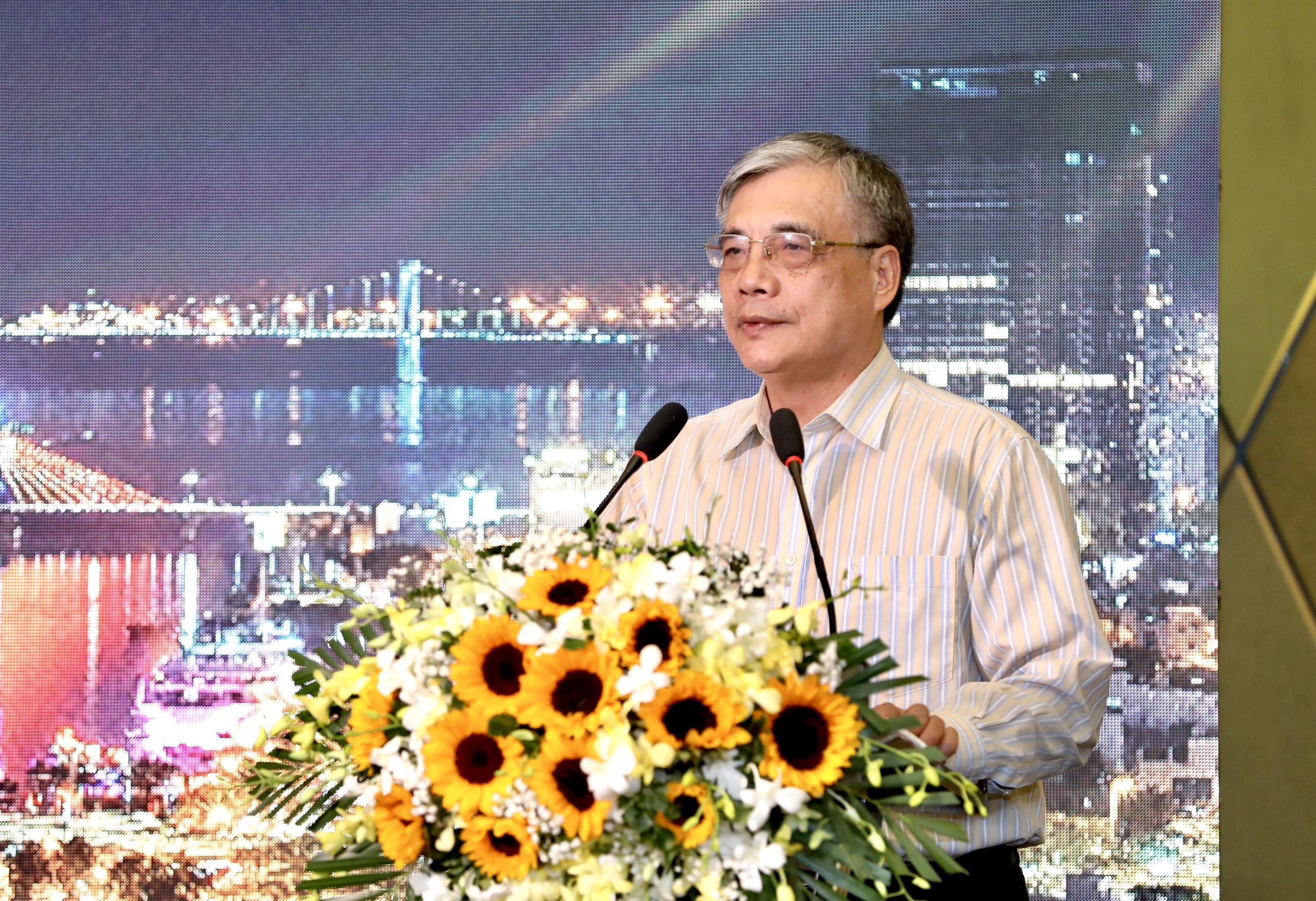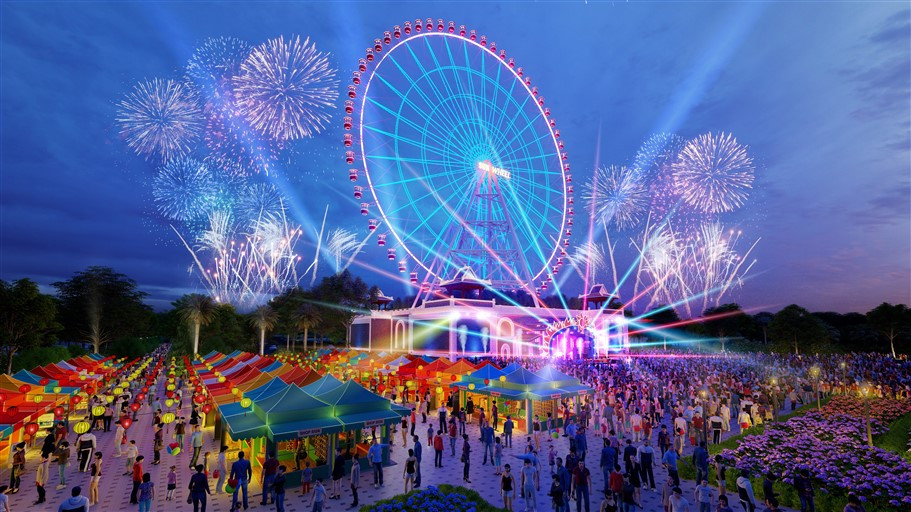Associate Professor, Dr. Tran Dinh Thien: Night-time economy is a solution to seize opportunities after Covid-19
"In Vietnam, high-class tourism is not yet developed, there is no night-time economy, there is a lack of businesses with the capacity to develop the night-time economy, and the government has not issued a plan to develop the night-time economy. These are the reasons why Vietnam's tourism revenue is low," said Associate Professor, Dr. Tran Dinh Thien.
You once said that the night-time economy is a competitive and development strategy for cities in the “post-industrial” era. This is considered a breakthrough solution for Vietnamese cities, taking advantage of the “latecomer advantage”. Could you please share more about this opinion?
Night economy is a continuation of daytime economic activities, lasting from 6pm the previous night to 6am the next morning, forming a night economic life. It is a real economy, with a specific structure, mechanism, motivation and resources: Services, consumption (food, theater, music, cinema, shopping, entertainment...) play a major role. This is the new competitive advantage of modern urban development.
The current development trend in urban areas (tourism), the night economy contributes greatly. More than 80% of the world's population lives in cities, creating great pressure and opportunities. To feed and ensure a place to live for urban residents, improving or deepening the city is not enough, but also knowing how to use time more intelligently. The night economy creates jobs, important income for individuals, and local budget revenue. That requires localities to quickly promote tourism, diversify entertainment and commercial activities, and revive deserted urban areas at night.
 |
| Associate Professor, Dr. Tran Dinh Thien |
In the world, the night economy accounts for an increasingly large proportion of the economy. The night economy has generated 66 billion pounds (about 80 billion USD) in annual revenue, making it the 5th largest economic sector in the UK. New York is the city that never sleeps, with the night economy contributing more than 10 billion USD to the city's economy. In Australia, the night economy is worth 102 billion AUS (about 70 billion USD), increasing by about 5%/year. Sydney alone is estimated at 27.2 billion USD/year.
Japan, the size of the night economy market is 400 billion yen (about 3.7 billion USD) by 2020. 20% of tourists to the UK in 2014 participated in night entertainment activities. 35% of tourists to Berlin are looking for night entertainment activities. New York, more than 26,000 restaurants serve the night economy. Manchester, more than 150,000 people participate in weekend night entertainment activities.
The most famous tourist cities in the world all have strong night-time economies such as Pattaya, New York, Macau, London..., which are in the top 10 cities that attract the most tourists, especially famous for their culinary, shopping, and entertainment streets that operate all night.
In Vietnam, Da Nang still does not have a night economy. That means there is still a lot of room for development.
In Vietnam, tourism revenue and tourist spending are low. Is the main reason due to the gap in exploiting services after 12 midnight, sir?
In 2017, Vietnam earned 8.3 billion USD from international visitors, but this figure in Indonesia was 12.6 billion; Singapore 18.4 billion, Thailand 52.5 billion. Comparing international visitors staying in Vietnam and Thailand for the same period of more than 9 days, they only spent 96 USD/day in Vietnam, while in Thailand it was 163 USD.
One of the important reasons is that Thailand's night economy is far ahead of Vietnam. Bangkok is considered a city that never rests because of the entertainment activities that take place day and night. According to MasterCard (2018), Bangkok continues to lead the list of cities with the largest number of annual tourists in the world. On average, visitors to Bangkok stay for 4.7 nights and spend about 173 USD per day.
In Vietnam, high-class tourism is not yet developed, there is no night-time economy, there is a lack of businesses with the capacity to develop the night-time economy, and the government has not issued a plan to develop the night-time economy. These are the reasons why Vietnam's tourism revenue is low.
To take advantage of the opportunity to "escape danger" and "breakthrough", it is necessary to urgently build a comprehensive night-time economic development program (strategy), within the overall socio-economic development strategy for the next period of the city as a priority content.
So what do we need to do to develop the night economy systematically and effectively?
It is necessary to prepare realistic conditions such as: having space to organize the night economy; developing industries, products serving the night economy and policy incentives. Along with that, it is necessary to establish conditions to ensure such as: Infrastructure, legal framework, security and safety system.
In particular, it is necessary to select the main force, orient and shape to implement the strategy of developing the night economy. For example, in Da Nang, we can choose Sun Group with Ba Na Hills and Asia Park; develop night neighborhoods along the beach, along the Han River with night markets and restaurants.
Is it true that developing the night-time economy in Da Nang has more favorable conditions than in other cities, sir?
Da Nang must plan to develop the night-time economy as a component of its night-time economic development strategy. It is not a means, not an extension of the daytime economy. It is a part, a planned economy, with different characteristics and goals.
More importantly, a good strategy is needed to attract good investors and retain good investors to develop the night-time economy, like Sun Group and a few other investors who have created the foundation for the daytime economy in Da Nang.
Only with a clear strategy will investors see that Da Nang is ready for a new and exciting game. That framework aims to ensure investors have little risk and a chance to succeed. I believe that the night-time economy is a solution to "seize" the post-Covid-19 opportunity for Da Nang to develop tourism and make a breakthrough in the future.
Many people believe that there needs to be a "freedom of thought" regarding policies to create conditions for businesses to confidently invest in developing the night-time economy. What do you think about this issue?
Regarding policy issues, just like developing the daytime economy, there is a need for land, human resources, technology, many specific factors such as light, noise, ensuring safety for tourists, investors must be allowed to do business all night... There must be different policies, suitable for the nighttime economy, not just existing laws.
Pioneers of the night economy will certainly face risks. The risk of a pioneer is that they invest here, but there are few customers, and gradually they will create a habit of staying up late, a habit of night entertainment, then they will have revenue...
Therefore, in the initial stage, there must be policies to reduce losses for businesses. There must be a clear commitment between the government and businesses to see the responsibility of the government as well as to help businesses see the support, but businesses must not have a mentality of dependence when the support ends...




